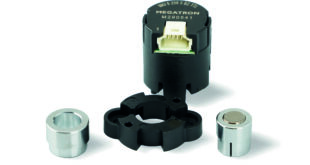As global regulations around product packaging tighten and compliance audits become more frequent, Domino Printing Sciences is highlighting the critical importance of ink safety.
Manufacturers operating in regulated sectors such as food, beverage, pharmaceutical, and medical devices are being urged to assess whether their current inks meet the latest safety standards and documentation requirements.
Ink formulations that contain Carcinogenic, Mutagenic, or Reprotoxic substances (CMRs) are increasingly being banned or heavily restricted under frameworks such as the EU Regulation (EC) No. 1935/2004, Good Manufacturing Practice Regulation (EC) No. 2023/2006, REACH (EC) No.1907/2006, and the US FDA Title 21 CFR.
Despite these requirements, many manufacturers still rely on older inks or third-party consumables – often without the necessary validation or traceability. This can lead to serious consequences, from failed audits and halted production to product recalls, brand damage, and ultimately can impact workforce health.
“Choosing the right non-toxic ink is important for your application. Many businesses are unaware that compatibility doesn’t equal compliance,” says Dr Jill Woods, Product Compliance Training Manager, Domino. “You may be using an industry ink that works on your line, but if it hasn’t been tested, documented, and proven safe for your specific market and application, you’re exposed to risk.”
An active member of EuPIA (the European Printing Ink Association), Domino develops non-toxic inks with compliance at their core. Every formulation is backed by a full suite of documentation which can be provided on request, including:
- Safety Data Sheets (SDS)
- Food packaging statements
- Migration test summaries
- Medical device declarations
- Statements of composition (under NDA, where required)
This allows manufacturers to demonstrate due diligence with confidence, and delivers peace of mind that, whether printing on blister packs, flexible food packaging, beverage cans, or secondary pharmaceutical cartons, their industry inks are fully compliant.
Domino’s non-CMR inks are engineered for performance and safety. While being compliant to both regional and global standards, they deliver excellent adhesion and durability across a wide range of substrates and challenging production environments. This includes extreme cold, steam sterilisation, and high-speed lines, enabling the production of high-quality compliant products for global markets.
“A compliant print today doesn’t guarantee compliance tomorrow,” adds Dr Woods. “Legislation continues to evolve. Our teams are continuously reviewing regulations and guidance – such as Nestlé’s standard for food packaging inks, the EuPIA Exclusion Policy, and EuPIA Good Manufacturing Practices (GMP), as well as all materials listed in food contact material legislation for food packaging inks – for recent changes and raw material bans in each region. Now is the time for manufacturers to review their ink specifications, check documentation, and ensure their coding operations are audit-ready.”
 Engineer News Network The ultimate online news and information resource for today’s engineer
Engineer News Network The ultimate online news and information resource for today’s engineer

